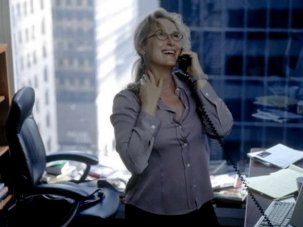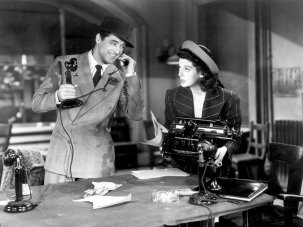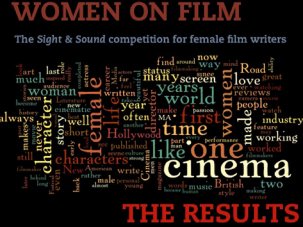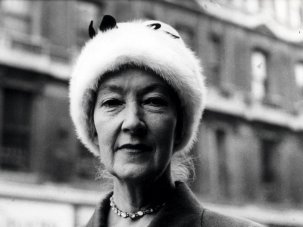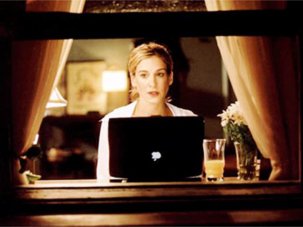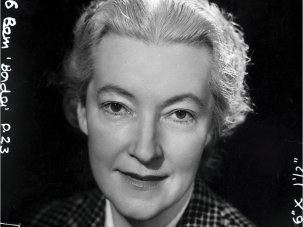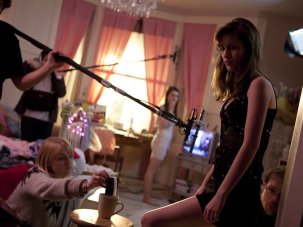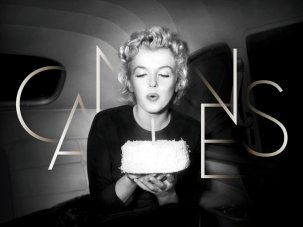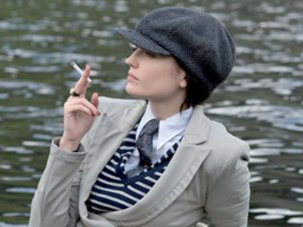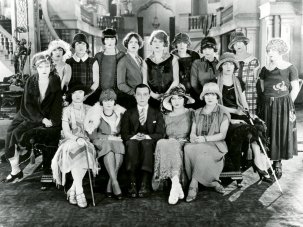Web exclusive
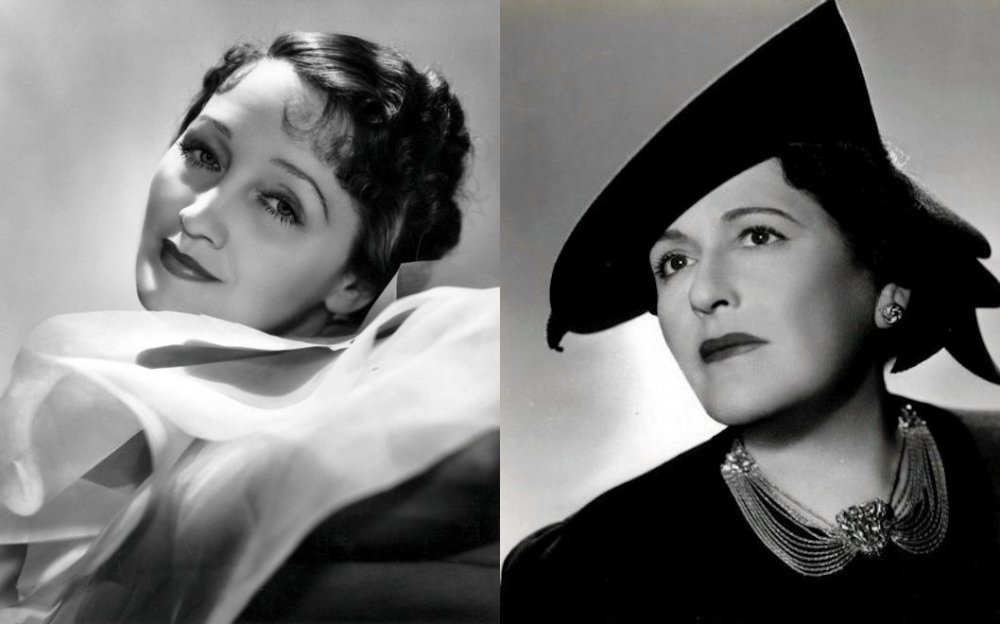
Hedda Hopper; Louella Parsons
For the past few months, Sight & Sound has been running a competition to find . The premise is that “women are under-represented in the film industry, and in film journalism as much as anywhere.”

That may be true of consumer magazines such as Sight & Sound and Empire. But it could hardly be less true of the Hollywood trades, my own stamping ground for the past two decades, where women call the shots to a remarkable degree.
In a tradition that goes all the way back to the legendary rivalry between gossip queens Hedda Hopper and Louella Parsons, women have always thrived in the cut-throat profession of peddling inside information about the movie business.
Variety, my own alma mater, has just appointed a troika of editors-in-chief, comprising the veteran Los Angeles Times sharpshooter Claudia Eller, long-serving Variety TV staffer Cynthia Littleton and digital expert Andrew Wallenstein.
The Hollywood Reporter has been brilliantly transformed (at great expense) from a grubby second-rate trade into a glossy magazine by Janice Min. She herself took over from the steel magnolia Elizabeth Guider, previously my international editor at Variety.
The best reporter at the Reporter is its award-winning editor-at-large Kim Masters, while the Variety has a copy desk packed with fine female editors, such as Carole Horst, Kirstin Wilder, Bobbie Whiteman, Pat Saperstein and Shali Dore.
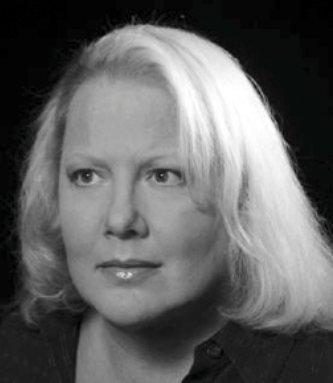
Nikki Finke
And of course, love her or loathe her, the single most important figure in film-trade journalism over the past five years has been the formidable Nikki Finke. By sheer force of will, allied to rottweiler reporting skills, she turned her Deadline Hollywood blog into Tinseltown’s most-feared website, and punched a gaping hole in the business models of the traditional trades. That enabled Deadline’s owner Jay Penske to snap up Variety last autumn for a knock-down price.
Finke’s nearest online rival is The Wrap, run by her former friend and now deadly enemy Sharon Waxman. Then there’s IndieWire, which focusses on life beyond the major studios. It’s headed by editor-in-chief Dana Harris, another old mucker of mine from Variety, with whom I spend many years in the trenches at Cannes pumping out market dailies. Another former Variety colleague, Anne Thompson, is the site’s star columnist. On this side of the pond, Screendaily is edited by Wendy Mitchell, while Sophie Dacbert runs Le Film Français.
So, under-represented? Hardly.
It’s tempting to conclude that women are particularly suited to a form of journalism that is based on negotiating and sustaining long-term relationships with over-indulged and emotionally arrested toddlers, who just happen to have been given hundreds of millions of dollars to indulge their wildest fantasies of self-gratification, both on and off the screen.
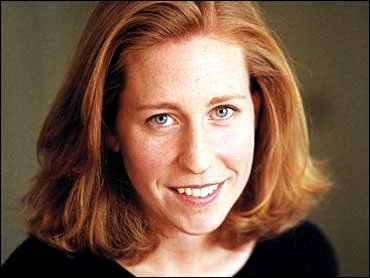
Sharon Waxman
Perhaps it requires a certain type of emotional intelligence, which women are commonly supposed to display more readily than men, in order to flatter, ingratiate and wheedle these ego-crazed monsters for information. In my experience, a trade reporter’s armoury must also include the ability to deliver a sharp smack of discipline to quell a tantrum and remind a source where their best interests lie.
But let’s not make the mistake of thinking that women are so good at Hollywood journalism because they are nicer than men. In my experience, the female reporters are the fiercest, scariest and most aggressive of the hack pack. Hopper and Parsons weren’t pleasant ladies. Nikki Finke is legendary for bullying Hollywood into submission. She built Deadline on a cast-iron conviction that she knew best, which she sometimes did, and when she got something right she shouted it from the rooftops in capital letters – TOLDJA! She broke all the previous rules about dog not eating dog by screaming ever louder when her hated old-school competitors at Variety and the Hollywood Reporter got something wrong.
She turned herself into a cult heroine for a legion of cheerleaders who regard Hollywood as The Man who needs it sticking to. They are constantly posting comments on Deadline to the effect that Nikki rocks, and everyone else sucks. The major studios tremble before Finke’s ire, and even took to employing full-time flacks – known as ‘Nikki whisperers’ – to keep her sweet with juicy tidbits, to soothe her when she was roused to anger (often) by the idiocy of their executives, and to dish the dirt on their rivals to deflect her fire elsewhere.
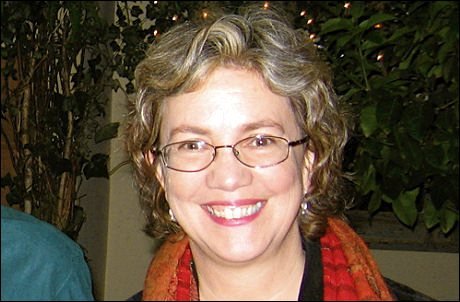
Anne Thompson
Yet part of Nikki’s ‘charm’ – and I use that word loosely – is the vulnerability behind the snark. Her blog posts on the fragile state of her health, which elicit sickly ‘get well soon’ messages from her fans, are read as eagerly as her rants against some hapless studio asshole who has blundered into her crosshairs. Nikki’s not posting on Deadline so much these days, with star reporters Mike Fleming and Nellie Andreeva doing the heavy lifting, and the site has become much duller as a result.
Nikki’s an extreme example, but not an exception among what Variety’s slanguage would call the hard-bitten tribe of distaff scribes. Variety’s new co-editor-in-chief Claudia Eller is a tigress when she has the whiff of a story in her nostrils, and commands respect across Hollywood because she’s seriously smart, not because of any ‘feminine’ people skills.
Former Variety and THR reporter Anita Busch was another tough individualist whose colleagues would tread softly around her cubicle for fear of drawing her from her lair. Woe betide the agent or executive who double-dealt Anita on a story she thought by rights was due to her. Anita never knew how to play nice with the other kids, but she was a great reporter in her heyday, before the infamous Hollywood private eye Anthony Pellicano put the frighteners on her by leaving a rose, a dead fish and a message saying “stop” on her car.
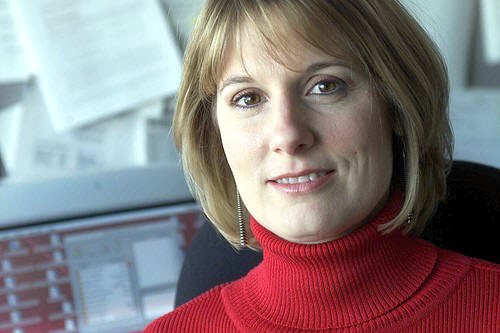
Anita Busch
A decade later, the mystery of who put Pellicano up to it still hasn’t been solved. Pellicano, in jail for other offences, isn’t telling. Busch is still trying to get answers, and justice, in a multi-million dollar lawsuit. Her experience proves that Hollywood journalism is no soft calling.
I don’t have any theories about why so many women thrive in the shark-infested pool of Hollywood reporting. Maybe the reasons aren’t positive (that women possess particular skills by virtue of their gender) but negative (that the usual factors holding women back are absent). Maybe this particular profession lacks the gender barriers to entry that exist in other jobs, for reasons I cannot easily discern, which simply means that it’s a rare professional sphere where women have an equal opportunity to succeed.
Actually, perhaps that’s the best reason to encourage more women to try their hand. As the Sight & Sound judges review the entries for their competition, I say the more the merrier. I’ve worked alongside and against many great and talented women for two decades. Until Sight & Sound inadvertently drew my attention to the fact, I hadn’t given it a second thought. If film-business journalism really is an equal-opportunity profession, then that’s a great recommendation for a career, whether for women or for men.
-
Women on Film – all our coverage
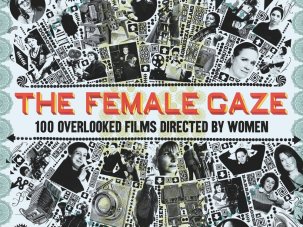
A window on our ongoing coverage of women’s cinema, from movies by or about women to reports and comment on the underrepresentation of women...
-
The Digital Edition and Archive quick link
Log in here to your digital edition and archive subscription, take a look at the packages on offer and buy a subscription.




